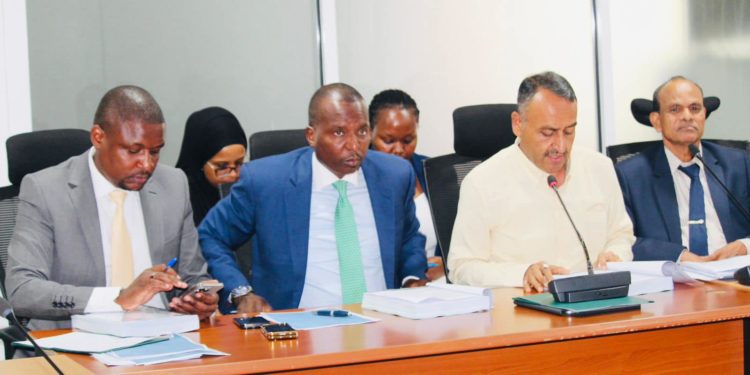Kel Chemicals Ltd has vehemently denied any involvement in the alleged supply of substandard fertilizers that were distributed to farmers under the government’s Fertilizer Subsidy Program.
Appearing before lawmakers on the National Assembly Committee on Agriculture and Livestock, Kel Chemicals’ Managing Director, Patel Devesh, insisted that the company’s NPK 10:26:10 fertilizer product received valid approval from the Kenya Bureau of Standards (KEBS).
“The company received positive results on the samples of the fertilizer following an independent application for analysis to KEPHIS on 21st March 2024,” Devesh told the committee chaired by Tigania West MP John Mutunga. “Regarding those sent to KEBS, we are yet to get feedback to date.”
At the heart of the controversy is Kel Chemicals’ contract with Mems Distributors Limited to supply 550,000 bags of NPK 10:26:10 fertilizer for distribution under the subsidy scheme. However, Devesh revealed that his company only manufactured and delivered 69,670 bags to Mems, leaving a shortfall of 480,030 bags.
“Mems was required to deliver a total of 550,000 bags to NCPB [National Cereals and Produce Board]. However, we only manufactured and delivered 69,670 bags. Therefore, in order to satisfy the terms of the contract between Mems and NCPB, the former was under an obligation to source for 480,030 bags,” the managing director explained.
Curiously, Devesh noted that the quantity of fertilizer bags recalled from farmers after allegations of substandard products exceeded the amount Kel Chemicals had supplied to Mems, raising suspicions of foul play.
“We are concerned by the emergence of these substandard fertilizers and of great concern to us is the insidious and spirited attempts to inculpate us as purveyors of the fake commodities,” he said. “We welcome impartial efforts to identify the real culprits and appropriate actions taken against them.”
Kel Chemicals’ legal team has called on the Directorate of Criminal Investigations to probe the contract pricing and payments between Mems and NCPB, hinting at potential irregularities in the tender process.










